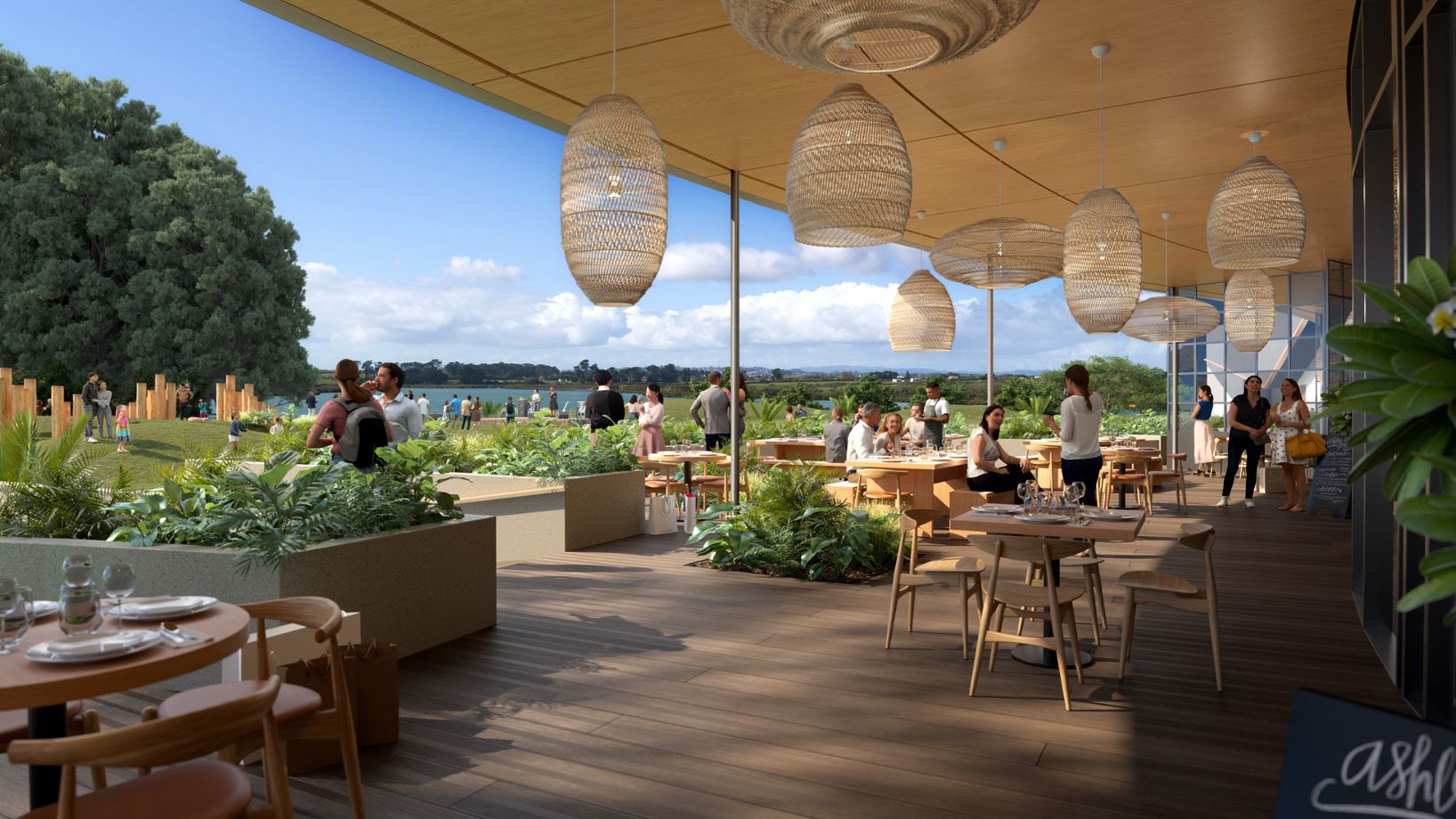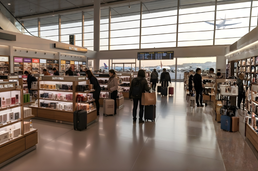
It’s Electrifying: New Outlet Centre Mānawa Bay Rolls Out Zero Gas Policy
- 2023-05-10

New Zealand is set to have its first ever fully electric shopping centre food court, with zero natural or LPG gas available on site at Mānawa Bay, Auckland Airport’s new premium outlet shopping destination.
Mānawa Bay, which is currently under construction and set to be completed late 2024, is committed to sustainability and renewable energy, including featuring what’s expected to be the largest rooftop solar array in New Zealand.
In another first, Mānawa Bay has introduced a zero natural or LPG gas policy, which is expected to eliminate up to 57% of its greenhouse gas emissions from its kitchens.
Speaking today at TRENZ in Christchurch, the business-to-business travel trade event, Auckland Airport CEO Carrie Hurihanganui, said: “Reticulated gas in commercial environments is currently the norm in New Zealand, and while electric cooking certainly isn’t new, having an entire dining area at a shopping centre powered solely by electricity is. It’s something we’re delighted to bring to Mānawa Bay.”
With 13 food and beverage operators planned for Mānawa Bay, cooking and heating with electricity will mean there will be less wasted energy projected into the atmosphere. Typically, 65 per cent of energy used by gas is wasted and goes into the air, rather than being utilised to heat food. Using radiant heat devices instead reduces energy loss to 35 per cent, while induction cooking equipment reduces energy loss to just 15 per cent loss.
“Mānawa Bay’s zero gas policy aligns well with the Climate Change Commission’s draft advice to government two weeks ago, which recommends new commercial developments are prohibited from connecting to fossil gas,” said Ms Hurihanganui.
“Cutting out the use of gas on site is also an important step towards achieving a 5 Green Star rating for Mānawa Bay and supporting Auckland Airport’s decarbonisation pathway to achieve net zero direct carbon emissions by 2030. It is one of several initiatives that we hope will also support the way future developments of this kind are planned.”
Key benefits of a fully electric dining precinct:
- Up to 37% energy savings compared to a traditional food and beverage precinct, operating with gas.
- In turn will require a projected decrease in loud ventilation systems in the onsite kitchens.
- Further to this, the electric kitchens will provide a saving on space, compared to using gas appliances, which are typically larger.
- In the long run, electric kitchens are estimated to cost less to run, with reduced energy and cleaning costs estimated to quickly offset higher capital outlay.
- Approximately 75 per cent of appliances in typical commercial kitchens are gas.
- The reduction in energy use on site in turn reduces demand on the building’s heating, ventilation and air conditioning (HVAC) system.
When it opens, Mānawa Bay will feature 100 stores offering sought-after fashion, athleisure, lifestyle and homeware brands. The dining precinct is to be located at the heart of the retail centre. With a focus on indoor and outdoor flow, it connects to an expansive alfresco area amongst park-like grounds, overlooking a play area for kids.
By achieving a 5 Green Star rating, Mānawa Bay is aiming to have improved energy efficiency, better indoor air quality, reduced waste, lower emissions, improved water conservation, contain more sustainable building materials and contribute to making a healthier environment.
Auckland Airport’s sustainability commitment:
- Mānawa Bay will support what’s expected to be the largest rooftop solar system in the country on top of the 35,000m2 building. At 2.3-megawatts, the solar array is planned to support more than 80 per cent of the shopping centre’s anticipated power usage.
- One of the key Green Star credits for the project is the management of construction and demolition waste. During construction, the Mānawa Bay project is targeting to divert 90% of its construction waste from landfill. As at February 2023, a total of 83% construction waste has been diverted from landfill.
- Mānawa Bay’s sustainability initiatives throughout the build include optimising resources, reducing carbon emissions, enhancing the local environment and supporting local communities.
- Auckland Airport’s steps to generate onsite renewable energy include a rooftop solar system planned for atop the $300 million-plus Transport Hub, under construction opposite the international terminal.






